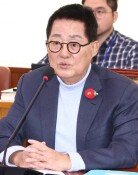Oldest Hangul Document by Ming Envoy
The newly found `Chukcheon Hengrok` (Traveler’s journal of Chukcheon, photo) is the Hangul transcription that Chukcheon Lee Deok-Hyeong described the journey to Ming in 1624). The purpose of his visit to Ming was to acquire an approval of Injo’s kingship from Ming after Injo enthroned himself as a king by a revolt, which is called Injobanjeon.
Prof. Cho Kyu-Ik, professor of Soongsil University, affirmed that this document is at least 120 years older than `Tamheonyeonhengrok,` currently known as the oldest Hangul record of envoys. Porf. Cho will present his paper, `The characteristics of Chukcheonhengrok as an envoy literature,` at the meeting of the Korean Language and Literature Institute, which will be held at Seoul National University in early June.
According to Prof. Cho, `Chukcheonhengrok` was recorded by an accompanying military officer and later it was edited by a person known as `Huh Seng.`
Prof. Cho also emphasized its significance in that the Hangul transcription portrays in detail the journey of the envoy which is not clearly revealed in Chinese documents of the envoys. He added, ``This is the first discovered document up to now which reports vividly the humiliating attitudes of the envoys and also its literary nature as a Hangul literature is excellent.``
By frankly describing the truth of the matter of Chosun envoy’s humiliation during their stay at Beijing, this document illustrates the relationship between Chosun and Ming at that time. `Chukcheonhengrok reports many shameful incidents such that Lee Deok-Hyeong had to bow down to the Chinese governmental officials who were on the way to work, and when Chinese literati ridiculed him asking whether Lee acknowledges the grace of the emperor, Lee replied, ``The grace of the emperor is penetrating throughout the world.``
However, opposing arguments also has raised in terms of the literary value of `Chukcheonhengrok.` Prof. Im Ki-Jung, professor of Dongguk University, admits that the Hangul document regarding Lee Duk-Hyeong’s travel is open to the public for the first time. But he asserted, ``Chukcheonhengrok is not the first Hangul traveler’s journal of the envoys.``
`Kapjasurojocheonrok,` a Hangul document of envoys which has already been known to the academic circle, was written in 1624, the year that Lee Deok-Hyeong visited Ming. Prof. Cho believes that `Chukcheonhengrok` was completed in 1647.
In addition, prof. Cho suspected that the notes of the military officer was originally described in Chinese. In this case, `Chukcheonhengrok` would be a Korean translation. He also added that there is nothing new about the humiliation of Chosun envoys since it had been recorded in many other journals of envoys. Controversies concerning the literary value of `Chukcheonhengrok` are expected to be stimulated by this academic conference.
Kim Hyoung-Chan khc@donga.com







